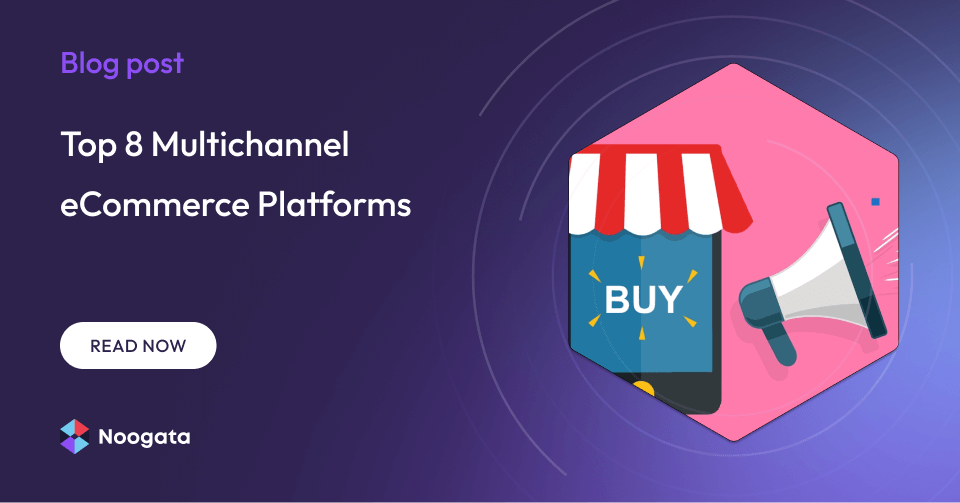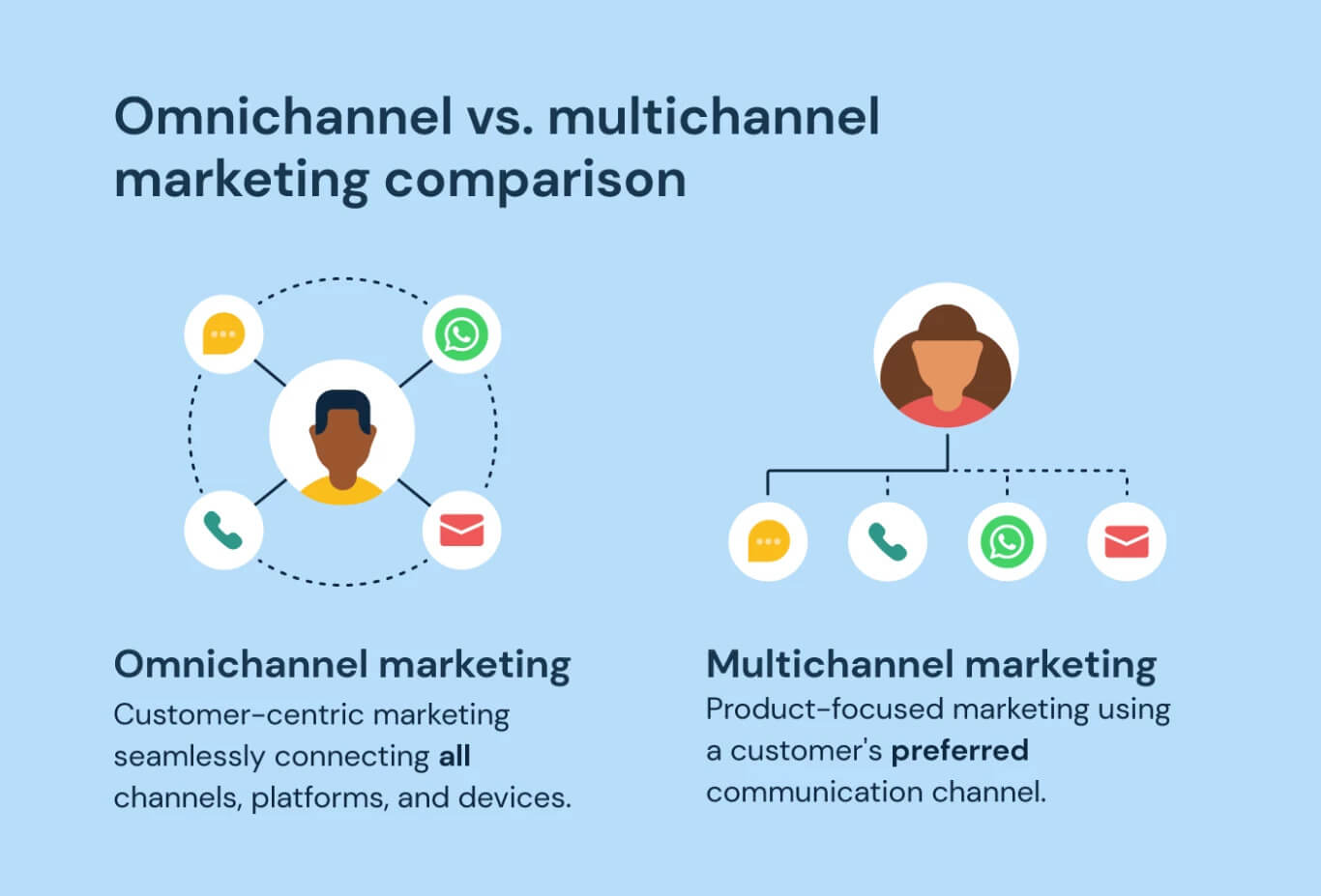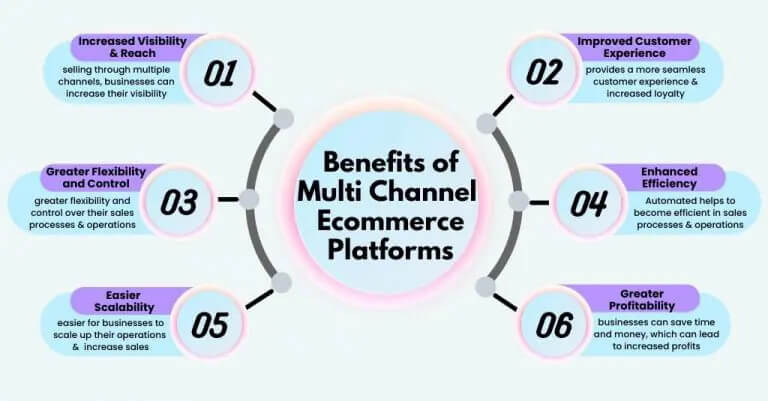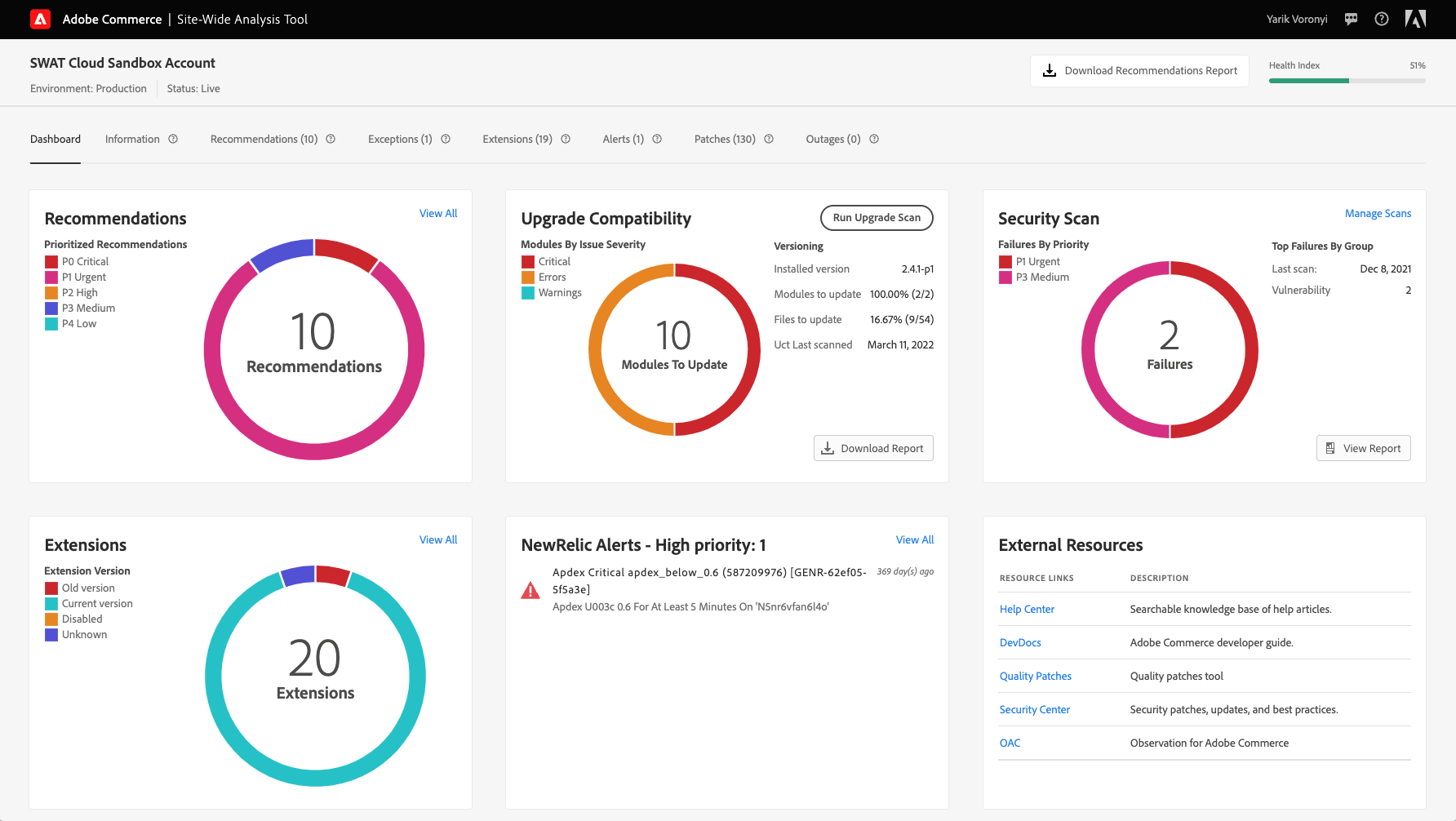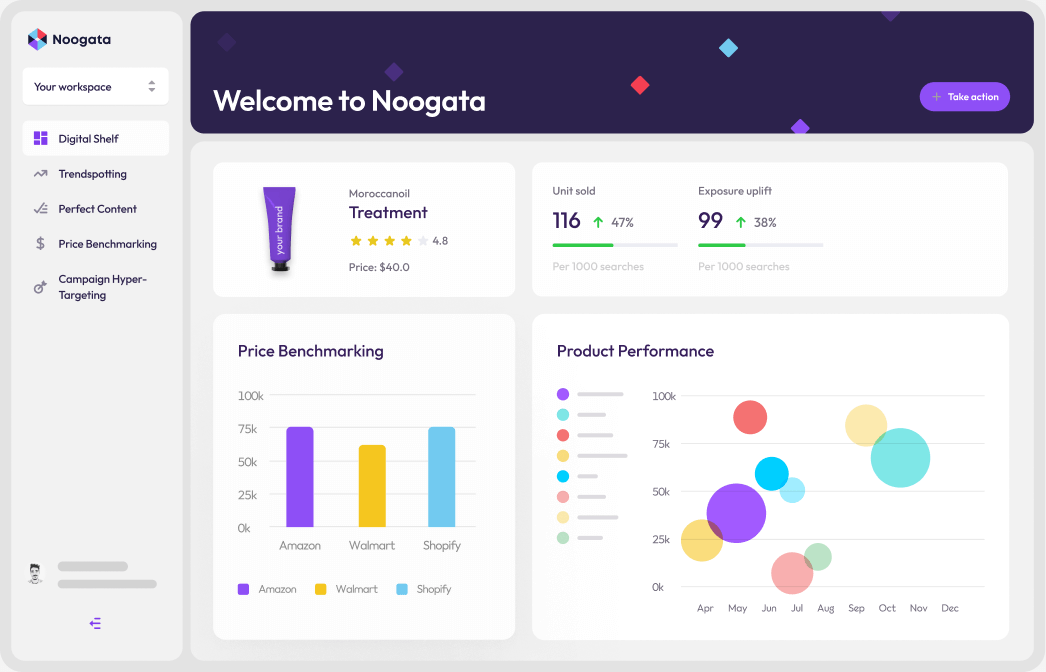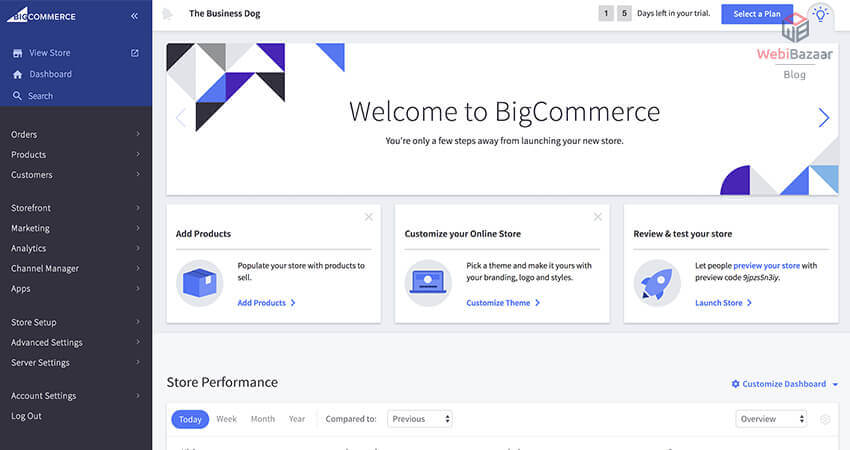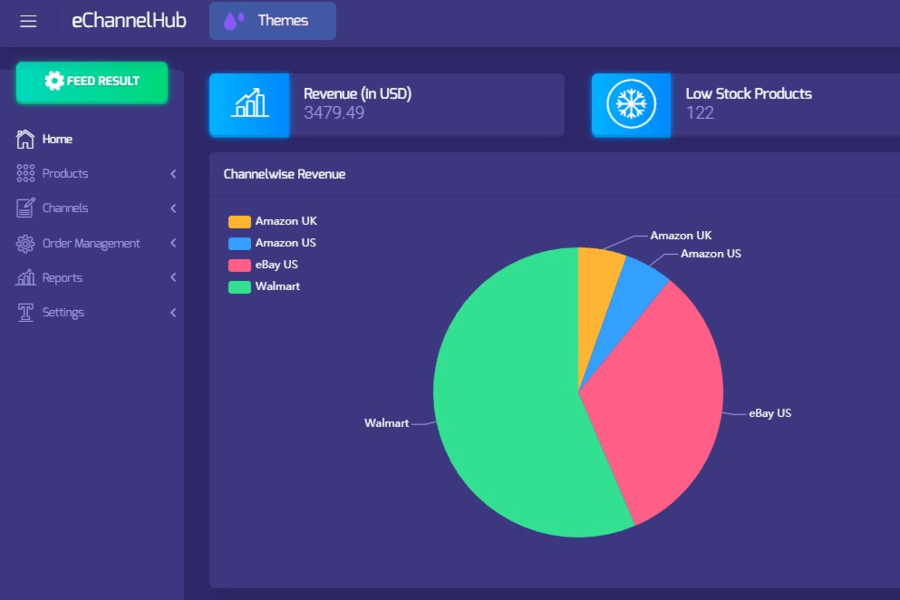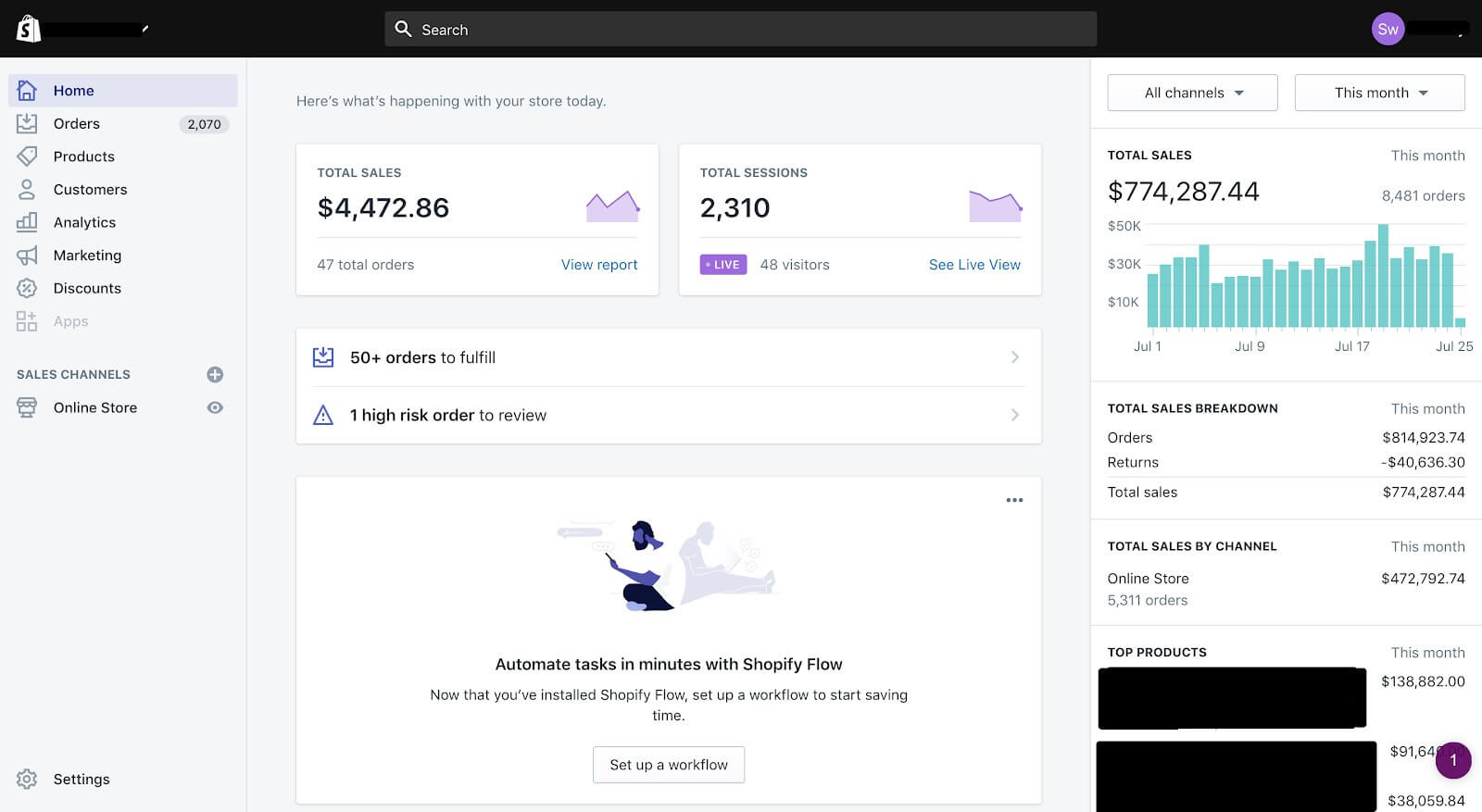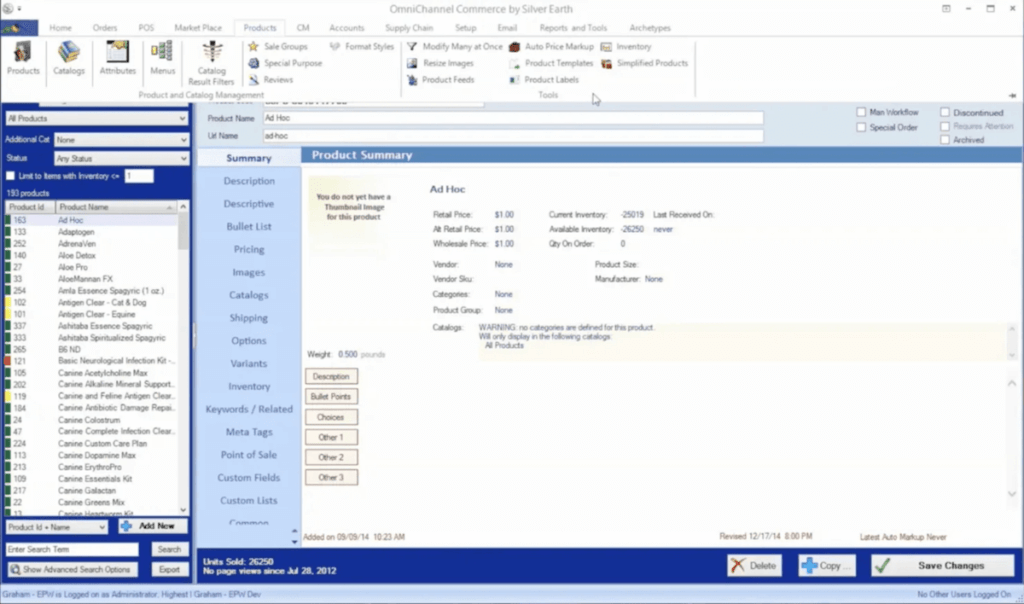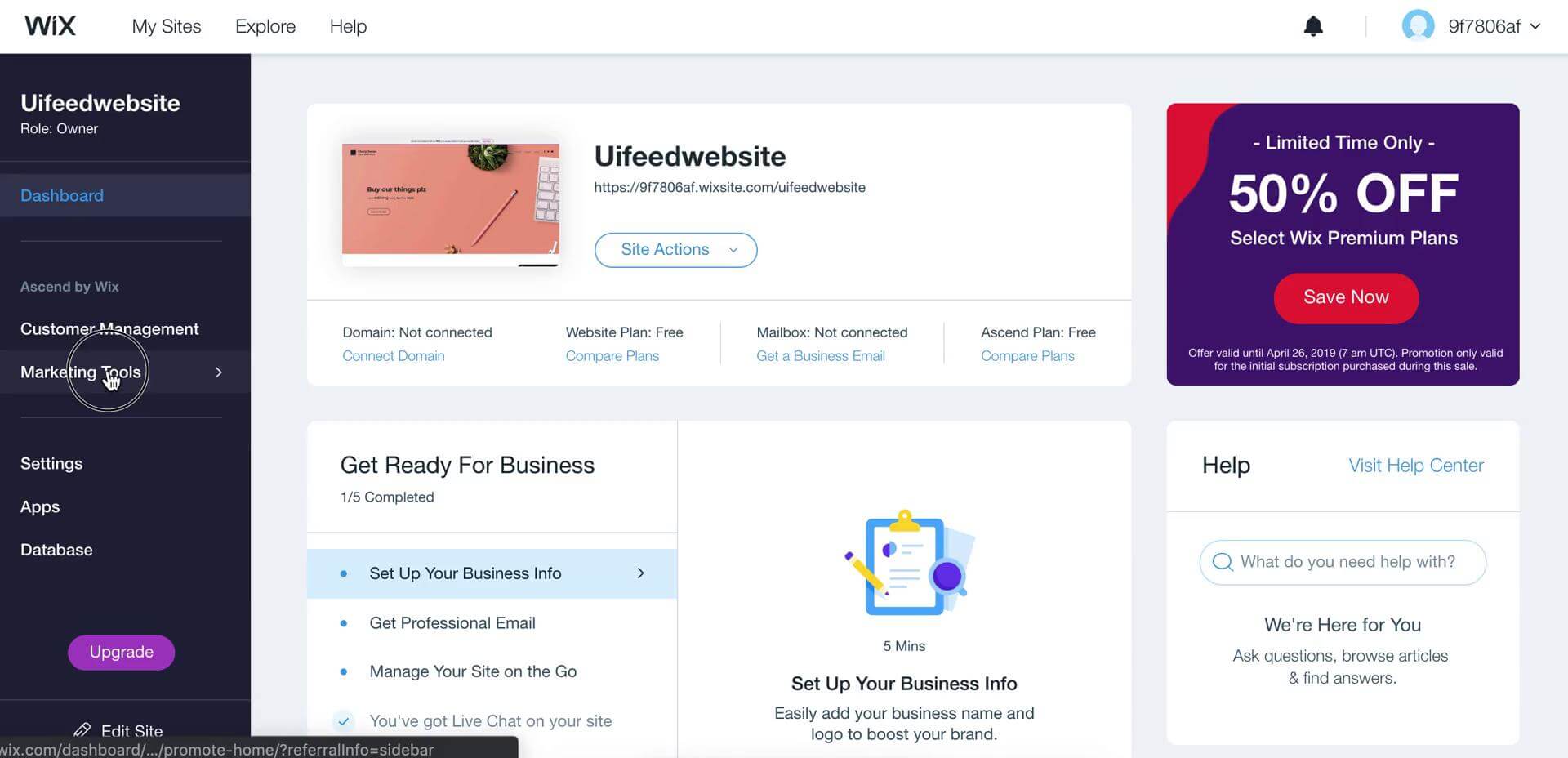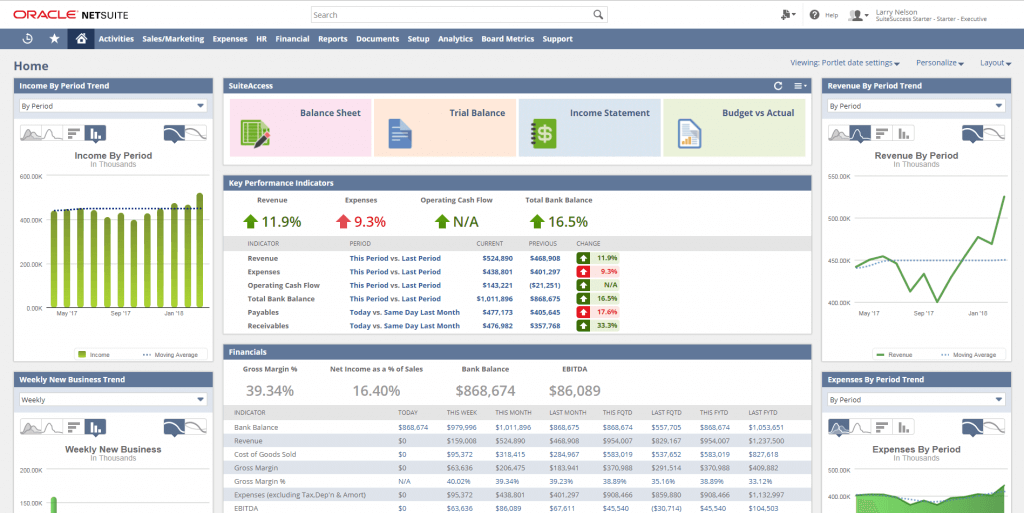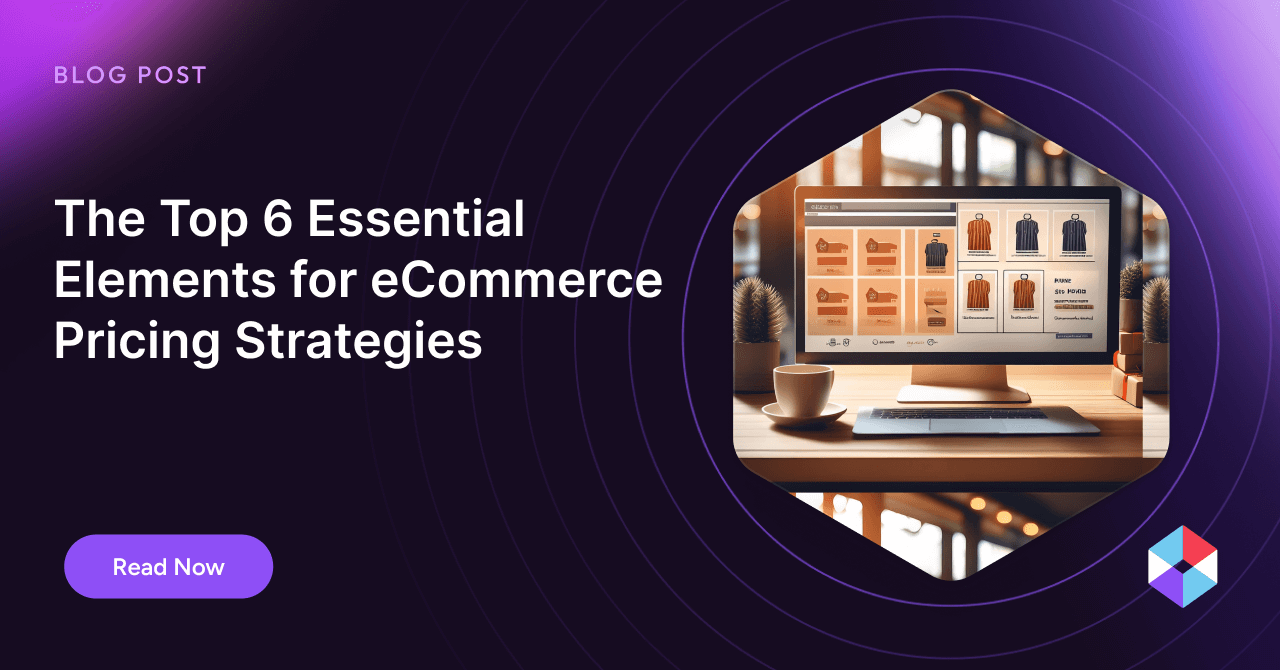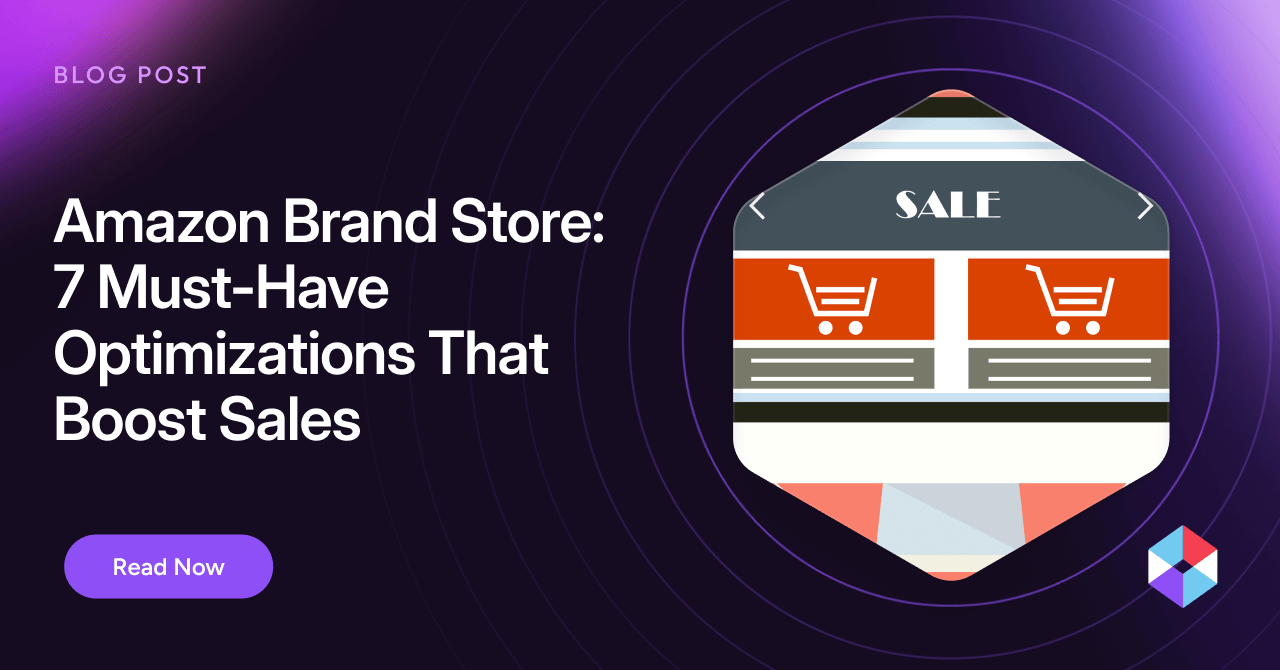A few short years ago, everybody had the same eCommerce experience: visit the website, fill your cart, check out, and then wait for your delivery. These days, the available options have expanded for every part of the customer journey. Enterprising sellers are marketing their products on multiple online channels where buyers seek innovative, convenient new ways to shop.
In the U.S. alone, multichannel eCommerce retailers expect to bring in more than $575 billion in sales in 2023. That puts multichannel on track to make up 46% of all online sales. Maintaining a strong presence across multiple channels is now a must for any serious eCommerce business, but you can expect to find fierce competition on every channel.
To succeed in this environment, merchants need a robust platform with the right tools and features to optimize a multichannel strategy. This post will review the top 8 multichannel eCommerce platforms, their key features, and their benefits.
What are multichannel eCommerce platforms?
Merchants use eCommerce platforms to process sales, manage orders, and handle other tasks associated with selling goods online. Multichannel eCommerce platforms are specifically designed to support merchants who sell through channels other than their website, such as retail stores, marketplaces like Amazon, affiliate partners, and social media.
Multichannel platforms may be comprehensive, all-in-one solutions or be designed to integrate with enterprise resource planning (ERP) or eCommerce frameworks that you’re already using.
The terms “omnichannel” and “multichannel” are sometimes used interchangeably, but omnichannel suggests that the merchant is trying to create a seamless and consistent experience across all channels. Multichannel platforms can provide many benefits of the omnichannel ideal, creating a smoother purchasing journey that leads to higher conversion rates.
Benefits of Multichannel eCommerce Platforms
A multichannel strategy increases your brand exposure and helps you reach more significant numbers of your target audience. You can generate more sales by meeting your customers on their preferred channels and accommodating their shopping preferences. Multichannel platforms can automate and optimize the activities that make this possible throughout the customer journey.
Without an effective multichannel eCommerce solution, businesses are stuck relying on siloed tools for each channel, leading to inconsistent and redundant efforts. In order to organize sales and customer data, teams are often required to manually export and curate data into spreadsheets, where it becomes difficult to track KPIs, identify growth opportunities, and obtain a unified and accurate view of your overall performance. Multichannel eCommerce platforms provide a solution to these challenges.
Leading-edge multichannel solutions like Noogata can use AI, machine learning, and other modern data modeling techniques to leverage all of the information at your disposal toward finding valuable insights—ensuring that you don’t miss a single opportunity to grow your sales and strengthen your position on the digital shelf.
Key Features to Look for in Multichannel eCommerce Platforms
The right multichannel eCommerce platform should be able to provide the following key features:
- Centralize your operations by integrating with all the sales channels you use.
- Automate cross-channel product listings and inventory updates
- Customize your messaging according to the requirements of each channel and its audience.
- Streamline your workflow for order management and fulfillment across all channels.
- Update your listing data automatically to optimize your visibility and meet the ever-changing requirements of third-party channels.
More up-to-date features to look for include AI to power analytics and creatives, and competitive intelligence. You’ll also want a user-friendly, cost-effective solution backed up by an attentive support team, of course.
Top 8 Multichannel eCommerce Platforms
1. Adobe Commerce
The popular open-source eCommerce platform formerly known as Magento is now Adobe Commerce. There’s still an open-source version available, but Adobe Commerce has built on the original to create a powerful, endlessly scalable, and customizable eCommerce framework. It combines Adobe’s trusted library of design tools with state-of-the-art AI technology. The result is a powerful solution that can easily support any merchant’s multichannel strategy.
Best for: Designing great-looking storefronts that can be scaled and customized as your business grows
Price: By inquiry.
Review: “It is packed with features. I have used it for years and I still don’t know all of its capabilities.”
2. Noogata
Noogata is a multichannel eCommerce analytics platform that uses AI to deliver competitive intelligence and trend forecasting that helps merchants succeed on every sales channel they’re utilizing. By constantly monitoring the web, social media, and marketplaces like Amazon for relevant data, Noogata’s AI can provide businesses with data-driven strategic recommendations for optimizing their product listings, pricing, and advertising.
The best part is that the user-friendly platform makes these actionable insights available to all organization members, from the C-suite to product managers. Its bespoke metrics are essential for outperforming the competition and winning the digital shelf, especially on Amazon.
Best for: Obtaining actionable insights into competitor activities and emerging market trends.
Price: By inquiry.
Review: “On Amazon, it is very hard to see how your competitors are doing as far as ads and keywords, pricing and sales. With Noogata, all that information is right there available to you.”
3. BigCommerce
BigCommerce lives up to its name by providing a robust platform with many options for multiple storefronts and channels, varied payment options, and international currencies. They offer integrations with all major marketplaces and industry-leading third-party vendors. Analytics and reporting tools help businesses optimize their marketing campaigns and boost sales.
Best for: Merchants who need a solid and versatile platform that will play nice with their other favorite solutions.
Price: $39 to $399 per month, with discounts for annual payments and a 15-day free trial.
Review: “Its powerful API allows us to connect easily to third-party platforms and add the functionality we need to produce a storefront which converts.”
4. eChannelHub
Designed with multichannel sales in mind, eChannelHub helps merchants get their products listed and synced up across a wide range of channels, with order and inventory management tools to provide a seamless sales process. It’s easy to use, offers integrations through a flexible open API, and provides 24/7 support when you need it.
Best for: Managing many product listings scattered across different sales channels.
Price: $169 to $469 per month. Pricing by inquiry for unlimited users.
Review: “I can now list a new product once! I add it to their site, and they optimize the listing for each of the marketplaces and post them for me.”
5. Shopify Plus
Shopify Plus provides the stability, speed, and customization options that eCommerce companies need when expanding into new markets and scaling up their operations. With a rich ecosystem of apps and partners, this eCommerce platform provides the resources to branch out into multiple channels with features like loyalty programs and one-click checkout.
Best for: Scalability and customization.
Price: Starts at $2,000 per month.
Review: “We love that we can have a wholesale version of each site to allow for resellers and B2B sales.”
6. SeCommerce by Silver Earth
Silver Earth’s platform is a comprehensive solution for eCommerce sellers with multiple websites and storefronts. They provide unified inventory management and consumer-friendly features to guarantee a consistent and positive shopping experience across all channels, including social media sites and marketplaces like Amazon and eBay.
Best for: Businesses needing an all-in-one solution emphasizing omni- or multichannel sales.
Price: Starts at $299 per month.
Review: “This system has really made our business much more efficient, and has given us the confidence to scale our company quickly.”
7. Wix eCommerce
Wix, primarily known as a website builder, offers a strong eCommerce solution in their all-in-one platform. The Wix eCommerce dashboard gives merchants a central hub to manage marketing, sales, and fulfillment across all channels. Although Wix’s ease of use makes it an appealing option for small or new businesses, the platform was built to handle enterprise-level demands.
Best for: Jumping into multichannel sales with a user-friendly but powerful platform.
Price: $16 to $159 per month, with a 14-day free trial.
Review: “You can quickly upload your media, and customizable fields are made clear. The dashboard is straightforward, and navigation makes perfect sense.”
8. NetSuite Commerce
Oracle’s offering, NetSuite Commerce, is a cloud-based platform with tools for managing customer data, inventory, and orders. Designed to be scalable for B2C and B2B sellers of any size, this platform allows you to create seamless, personalized shopping experiences across all channels, whether on the web, on mobile devices, in-store, or elsewhere.
Best for: Multichannel eCommerce management with strong CRM functionality.
Price: By inquiry.
Review: “It’s easy to pick up and use, flexible enough to work in any circumstance, and facilitates precise, real-time communication amongst team members.”
Win Every Channel with Noogata
While many platforms can automate and streamline your business operations across multiple sales channels, only a select few are designed to help you achieve the best possible position on every channel where your brand sells.
Noogata utilizes advanced AI-driven data analytics to deliver the insights and intelligence to give you a competitive advantage across the entire multichannel spectrum.
Sign up for a free demo today to discover how Noogata’s AI-powered platform can help your eCommerce business grow.
